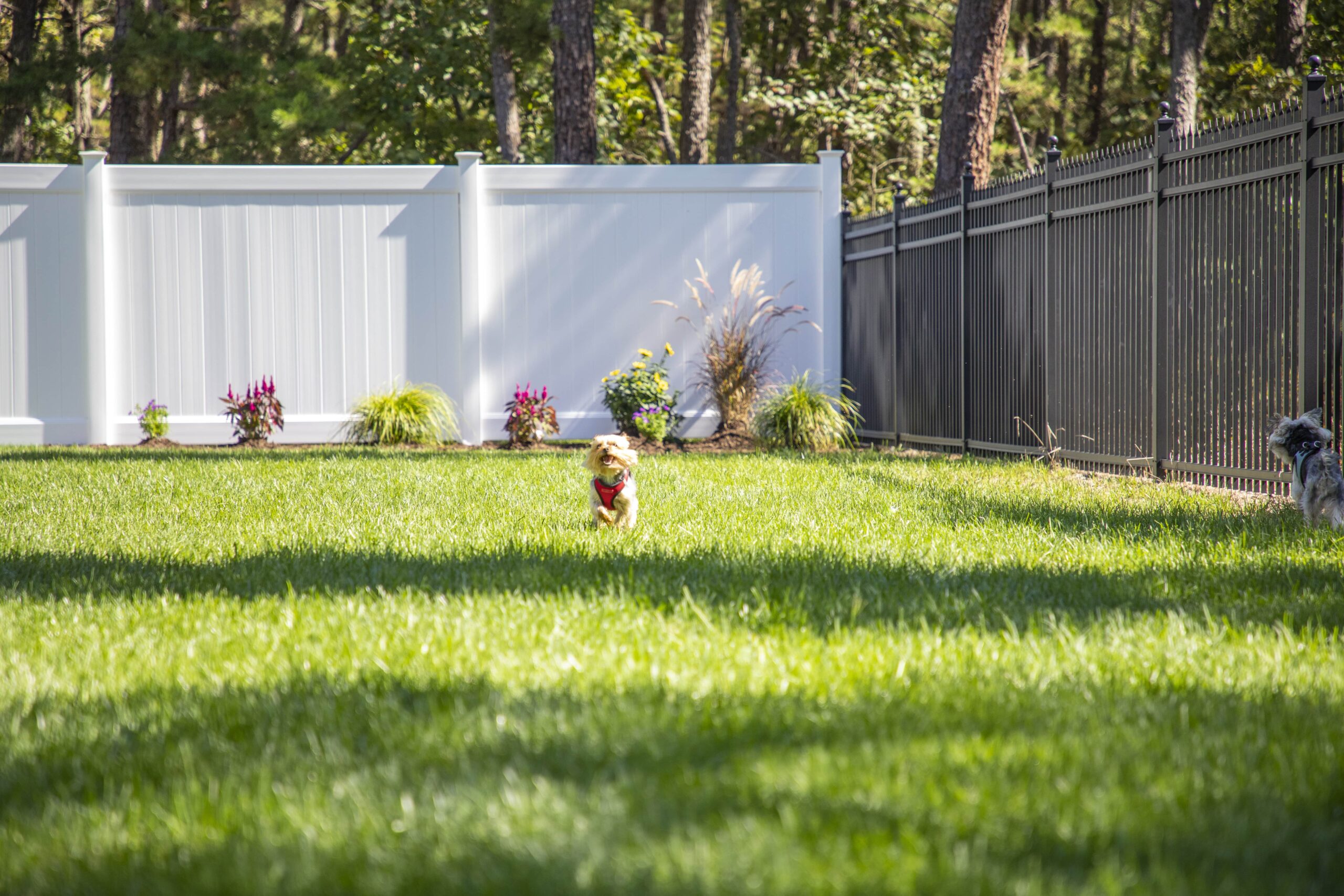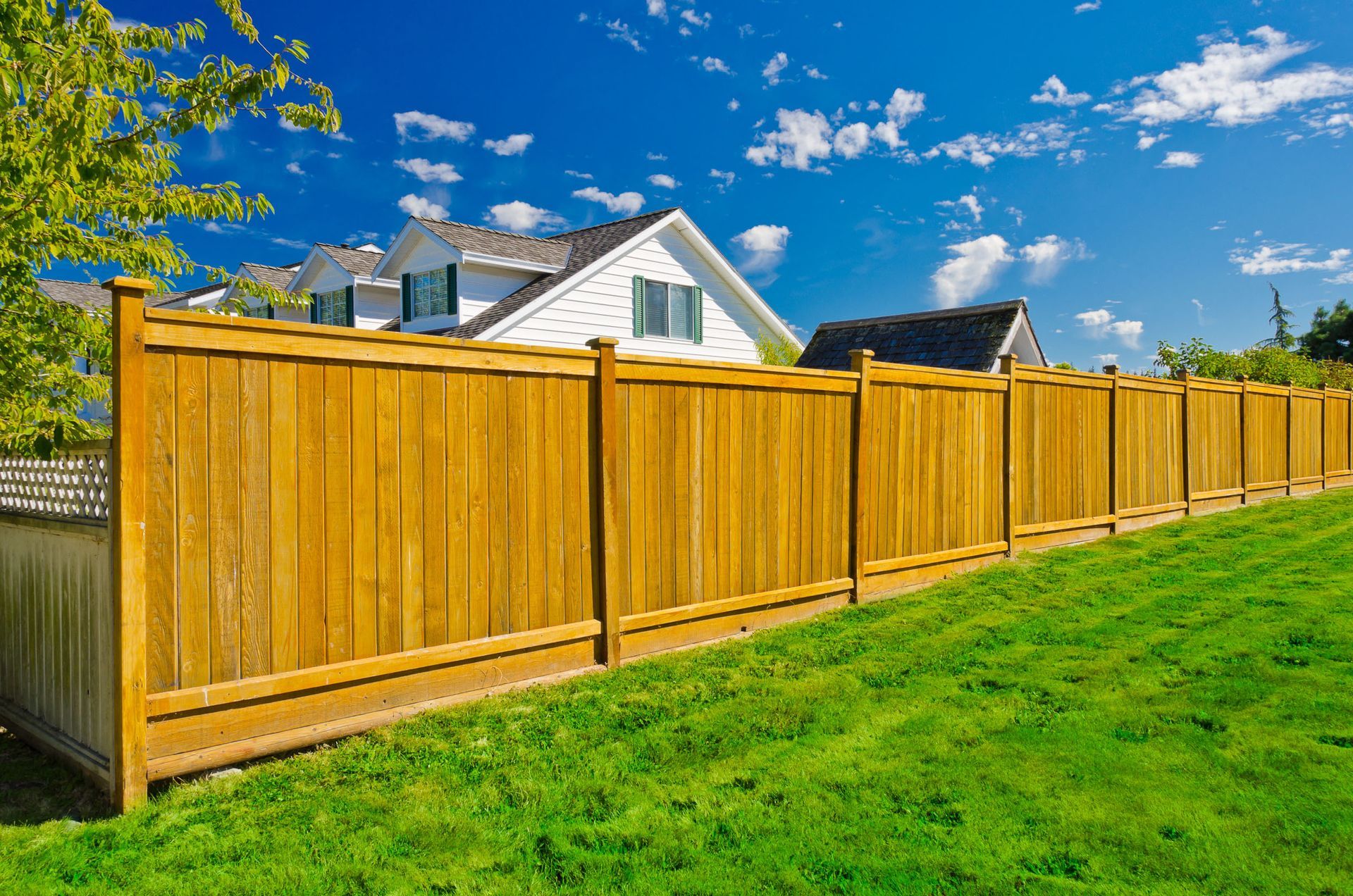All Categories
Featured

When setting up a fence, choosing the right product is essential to balancing capability, looks, and budget plan. Wood, plastic, and aluminum are amongst one of the most typically picked fencing products, each with its downsides and staminas. This overview checks out the pros and cons of these options to assist you make a notified choice.

Timber Fencing. Pros:. Natural Appeal: Wood's classic beauty can enhance any kind of building with its warm and traditional appearance. Adjustable: You can repaint, discolor, or sculpt timber to fit your style choices. Cost effective: Wood fencing is originally much more economical contrasted to a few other products. Ecologically Friendly: As a renewable energy, timber is naturally degradable and frequently considered environment-friendly. Cons:. Maintenance-Intensive: Routine securing, painting, or staining is called for to avoid damage from weather condition and parasites. Prone to Decay: Without correct treatment, timber can rot, warp, or fracture in time. Much shorter Lifespan: Generally, wood fences last 10-15 years, depending upon the kind of timber and maintenance. Wood is a terrific choice for those who value visual appeals and are eager to purchase regular upkeep to protect its appearance and resilience.
Vinyl Secure Fencing. Pros:. Reduced Maintenance: Vinyl requires marginal care-- simply occasional cleansing with soap and water. Weather Resistant: It does not warp, rot, or yield to insect damages, making it very long lasting in various climates. Durability: Vinyl fences can last 20-30 years with little to no repairs. Style Variety: Available in a variety of structures, shades, and styles, including wood-like appearances. Disadvantages:. Higher First Price: Plastic fencings are more expensive ahead of time contrasted to timber. Vulnerability to Cold: In incredibly winter, vinyl can come to be brittle and vulnerable to splitting. Limited Repair Service Options: Matching substitute panels can be challenging if damage happens. Plastic fencing is ideal for property owners trying to find a resilient, low-maintenance option that uses contemporary versatility.

Light Weight Aluminum Fence. Pros:. Rust-Proof: Light weight aluminum stands up to deterioration, making it an excellent choice for damp or moist atmospheres. Long lasting: In spite of being light-weight, aluminum is strong and can hold up against harsh climate problems. Reduced Upkeep: It requires very little maintenance, generally only periodic cleaning. Long Lifespan: Aluminum fencings can last years without significant wear and tear. Classy Layout: Commonly used for decorative purposes, light weight aluminum fence adds a smooth, innovative seek to residential or commercial properties. Cons:. High First Investment: Light weight aluminum fences are among the costlier alternatives on the market. Much less Privacy: The open styles common with light weight aluminum fencing don't give much personal privacy. At risk to Damage: While durable, aluminum can damage if hit with sufficient force. Light weight aluminum is an outstanding choice for homeowners prioritizing aesthetics and sturdiness without needing much upkeep.
Making Your Decision. When making a decision between vinyl, light weight aluminum, or timber fencing, consider your priorities:
Timber fits those who value an all-natural look and don't mind placing in upkeep initiative. Plastic is the very best option for those seeking a low-maintenance, weather-resistant service. Aluminum supplies sleek style and durable sturdiness but might lack privacy. By very carefully evaluating these materials' functions, you can select a fencing that complements your residential property while meeting your functional and aesthetic needs.
Latest Posts
Find Affordable Auto Repairs with Montclare’s Exclusive Service Specials
Published May 26, 25
1 min read
Discover the Perks of Vinyl Fencing with Montana Fencing
Published May 21, 25
1 min read
Specialist Industrial Roof Solutions in North Platte, Nebraska
Published May 20, 25
2 min read
More
Latest Posts
Find Affordable Auto Repairs with Montclare’s Exclusive Service Specials
Published May 26, 25
1 min read
Discover the Perks of Vinyl Fencing with Montana Fencing
Published May 21, 25
1 min read
Specialist Industrial Roof Solutions in North Platte, Nebraska
Published May 20, 25
2 min read